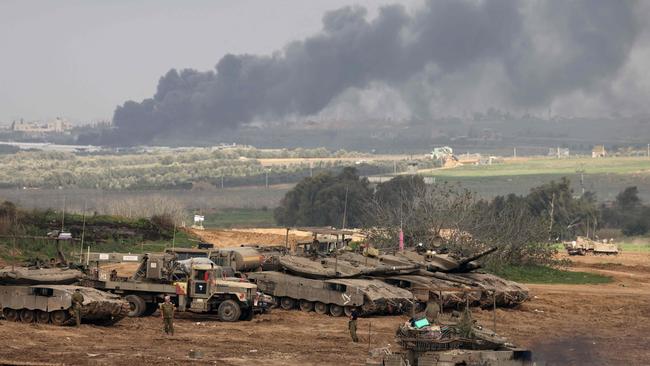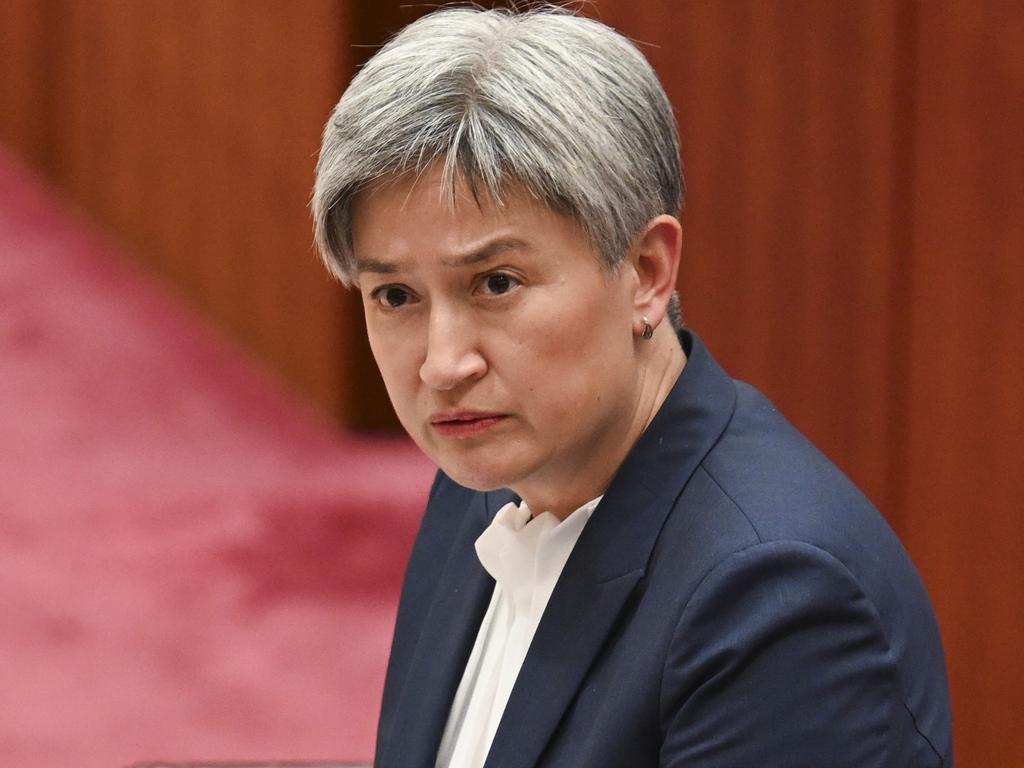Getting on the front foot to help pave way for Gaza’s future

The minister will also be able to convey Australian ideas that might be helpful to the longer-term peace process and outline possible Australian contributions.
Hopefully, she will take the opportunity to visit the Israel-Gaza border communities where she would gain a close, personal appreciation of the brutal, sadistic savagery and genocidal regional Islamist agenda of Hamas. Having this perspective should help form a sound position on Israel’s right and need to prosecute the war against Hamas and to ensure Israel, and the wider world, is never again subject to this kind of evil.
Wong’s visit comes in the wake of the four-point “day after” plan recently floated by Israeli Defence Minister Yoav Gallant. There’s now also intense US diplomacy focused on crafting a way forward from the war to a two-state solution.
Gallant’s plan involves Israel supporting the establishment of civil governance and being responsible for inspecting incoming goods. A multinational taskforce, led by the US, in partnership with European and moderate Arab nations, would take responsibility for running civil affairs and the economic rehabilitation of Gaza. Egypt would take responsibility for the main civilian border crossing into Gaza, in co-ordination with Israel. Existing Palestinian administrative mechanisms would be maintained, provided the relevant officials were not Hamas operatives.
Local authorities, dealing with basic services, would continue to function in collaboration with the multinational taskforce. Israel would retain overall security responsibility through the gradual implementation of this process.
The proposed approach is fundamentally sensible. It makes use of available power structures other than those that are violently hostile. Prime Minister Benjamin Netanyahu has flagged the need for a “reformed” Palestinian Authority. The Arab states have declared that Gaza must be placed under PA control – the goal of the US as well. These positions could be reconciled with the right approach to implementation.
Wong will benefit from her hosts explaining the broader context of the Hamas threat: it’s part of the “rectangle of rogues” (Russia, Iran, China, and North Korea) with their array of active conventional threats, through to the use of proxies and grey zone strategies.
No doubt the Foreign Minister will find that there is a marked reluctance by some in Israel to support a role for the Palestinian Authority in the “day after”. But building a viable PA that would have any credibility in Gaza means that it would also need the confidence of the West Bank Palestinian community. It’s in this context that Wong might convey the need for Israel to roll back settler outposts, and subject them to proper law enforcement. This will also free Israeli governments from the perennial threat to their policy discretion and costs that these settlers generate.
The Foreign Minister is expected to visit the PA in Ramallah, where she should convey to her Palestinian interlocutors the impediments to peace on the Palestinian side. These include the PA eliminating its support for and acclamation of terrorists, ending the incitement in the education system, and dealing with dysfunction and corruption.
Australia can offer help in building a long-term culture of democracy in Gaza and the West Bank. This might involve training civil servants, technical advice and support, performance monitoring, accountability measures and education reform.
Australia contributed to PA state institution building in 2005 by providing an Australian army officer to the international team working to create the PA security sector. Sadly, this mission fell apart when Hamas waged a civil war against the PA in 2007, killing 600 Palestinians and dismantling the police, judiciary and other democratic institutions.
When the war ends, Australia could offer reinvigorated institution building efforts in Gaza through the training of the security sector, including in accordance with human rights standards, the judiciary, civil service skills and ethos and education that doesn’t disseminate racial hatred and glorify terrorism. Our contribution might include designing and operating key performance indicator monitoring, detection of insider threats, tracking of transactions and finance and accountability mechanisms.
We could offer civil affairs contributions in Gaza as part of an international taskforce. We might, for example, offer to consider expanding our observer contribution in the Multinational Force and Observers in Sinai, very close to Gaza, to support Israeli and Egyptian efforts to ensure neutralisation of Hamas if the two states agreed.
Our extensive history of meaningful engagement in the region, our long-term support for a two-state solution, the broader implications for managing global threats and our own social cohesion suggest we should be on the front foot in offering effective support to move the peace process forward. But that must be done with eyes wide open with no blank cheques and proper oversight.
Mike Kelly is a former federal minister and co-founder of Labor Friends of Israel. Anthony Bergin is a senior fellow at Strategic Analysis Australia, and an expert associate at the National Security College.





Foreign Minister Penny Wong arrives in Israel this week with an opportunity to develop a deeper understanding of key developments to better inform our approach to the Israel-Gaza war.